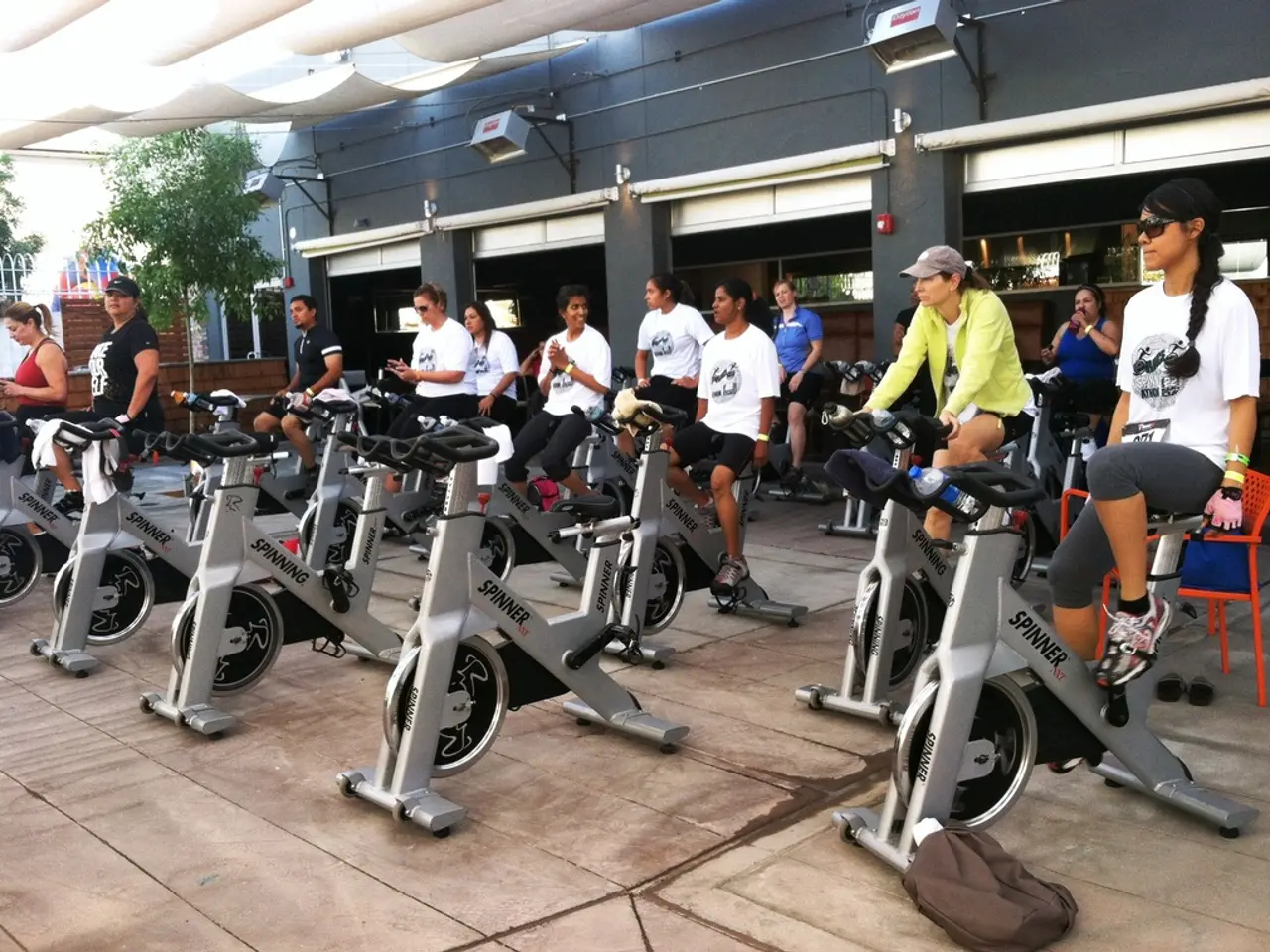Germans are spending more hours daily sitting than ever before, as per the latest health report. - Germans are, for the first time, spending more time seated in the mornings, as per the latest Health Report.
In a recent report published by the German Health Insurance (DKV), it has been revealed that the majority of people in Germany spend more than ten hours a day sitting, which is nearly two hours more than a decade ago. This increase in sitting time is considered a "concerning record" by the DKV.
The report, conducted with the German Sport University Cologne and the University of Würzburg, focused on nutrition, physical activity, alcohol consumption, smoking, stress behavior, and time spent sitting. It was found that people spend approximately three and a half hours sitting at work, two and a half hours in front of the TV, and one and a half hours on a computer or tablet.
However, the report does not provide new information about the percentage of people who manage to compensate for a sedentary lifestyle with enough physical activity. Only a little over a third (30 percent) of those who sit a lot manage to do so, according to the report.
The report also indicates that only about a third (34 percent) meet the World Health Organization's recommended twice-weekly muscle training. More than two-thirds of respondents (68 percent) meet the recommended endurance activities, keeping the level quite stable.
In terms of nutrition, the report indicates that only about a third of the population eats healthily and follows the recommendations of the German Society for Nutrition (DGE). The report reveals that 29% of respondents do not drink alcohol at all.
The report also highlights a gender difference in health, with three percent of women meeting all criteria for a healthy life compared to one percent of men. The report suggests that while younger adults tend to drink less alcohol, older adults fare better in nutrition and stress management.
Interestingly, the report shows that 80% of respondents do not smoke or use e-cigarettes. However, smoking remains a significant risk factor, as only two percent of the population meet the conditions for a healthy lifestyle.
The report surveyed more than 2,800 people between February 11 and March 17. It is important to note that if you require detailed main findings and implications specifically from the DKV 2021 Health Report, I recommend consulting the official DKV publications or their website directly, as the available search results do not provide this data in detail. The report's findings underscore the need for public health interventions promoting active living, smoking cessation, and healthy eating in Germany.
- To address the concerning record of increased sitting time in Germany, the community policy could focus on implementing workplace-wellness programs that encourage vocational training in fitness-and-exercise, promoting a more active lifestyle during work hours.
- Given the alarming prevalence of mental-health issues in the population, vocational training in mental-health awareness could be incorporated into job skill development as part of the community policy, to equip workers with the necessary skills to manage workplace stress effectively.
- As the report reveals a gender gap in health indicators, science-driven research should be pursued to understand the root causes of the disparity and devise targeted health-and-wellness strategies tailored for each gender.




